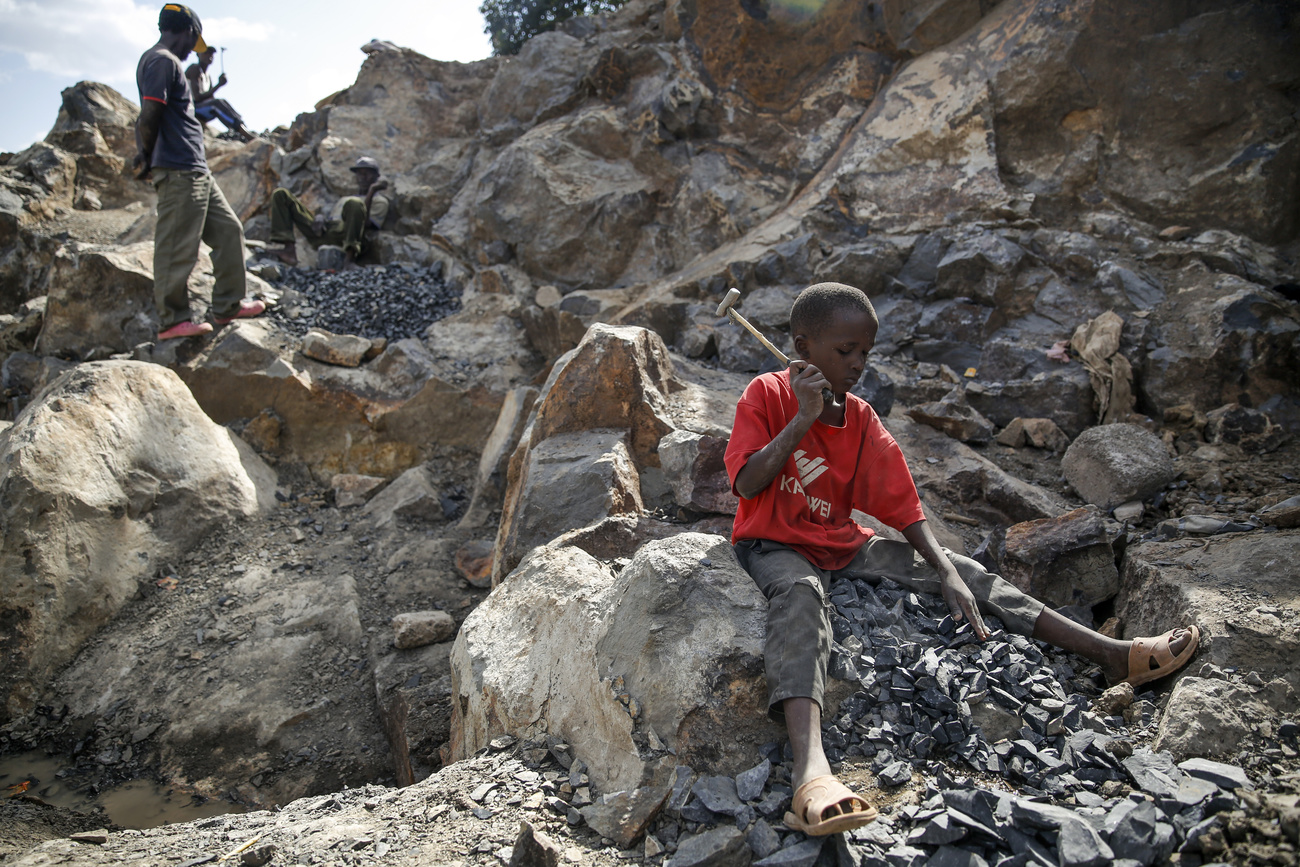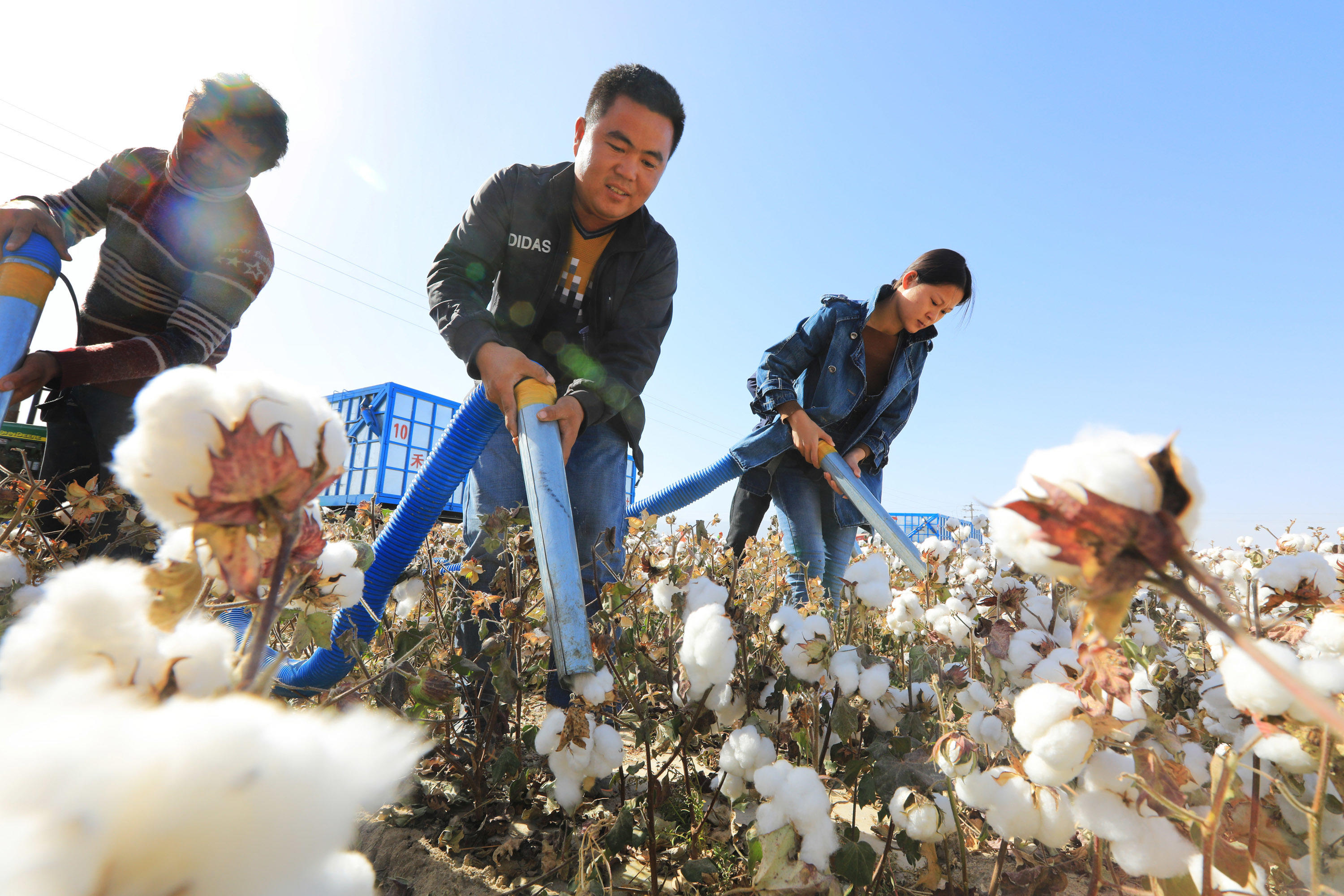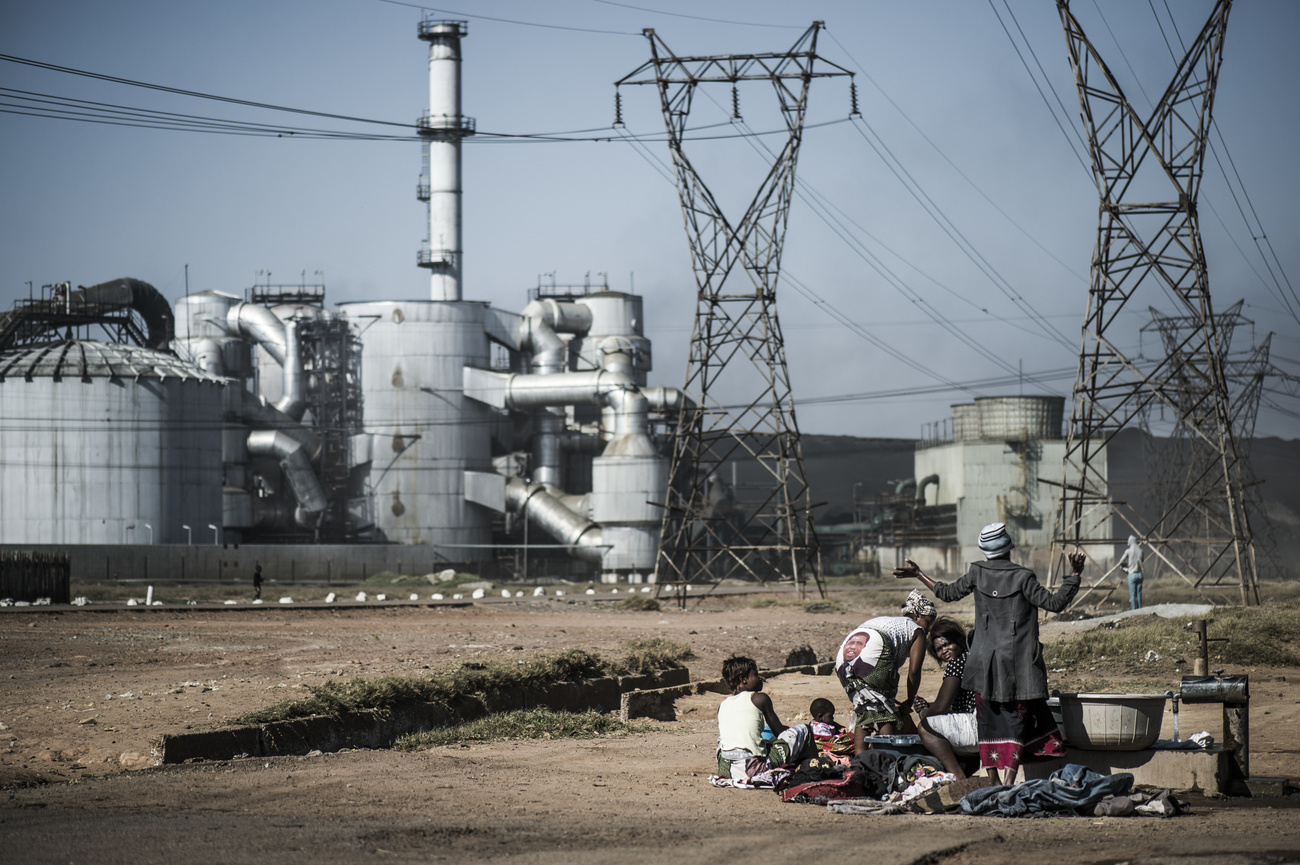What the EU crackdown on supply chains means for Swiss companies

The European Parliament has adopted new laws to rein in companies for human rights abuses in global supply chains. This will have far-reaching impacts on Switzerland’s largest companies.
After years of debate, the European Parliament agreed this week to back two new laws that create obligations on companies to tackle human rights abuses in their supply chains. On April 23 the parliament gave the greenlight to rulesExternal link that would ban products from EU export and import if they are made with forced labour.
A day later, European parliamentarians adopted sweeping legislationExternal link requiring companies to not only identify human rights and environmental risks but to take measures to address them. If they fail to do so, they will be liable for damages in the EU.
Both laws represent a shift away from regulators’ hands-off approach to corporate breaches of human rights in supply chains, says Nicolas Bueno, a professor of human rights law at UniDistance Suisse who has been following the EU process for years.
“The fact that these two laws were adopted right now is a sign that European public opinion is increasingly ready to regulate the conduct of global corporate actors that have benefited for years from a legal void,” Bueno said. “They will now be accountable for harms they cause abroad.”
According to the ILO, forced labour is all work or service that a person performs under the threat of a penalty and for which the person has not offered themself voluntarily.
Companies have long argued that self-regulation and voluntary actions are sufficient. However, human rights abuse in supply chains remain pervasive. The International Labour Organization (ILO) estimatesExternal link that 17.3 million people in the private sector are forced to work against their will across a range of sectors such as agriculture, fishing and construction. An ILO reportExternal link published in mid-March suggested that forced labour in the private economy generates around $236 billion (CHF216 billion) in illegal profits a year.
Earlier this year, an investigation by Swiss public television, SRF, revealed that children are working on cocoa plantations in Ghana that supply Swiss chocolate manufacturer Lindt & Sprüngli. This is despite corporate pledges and programmes to eliminate it.
What it means for Switzerland
Although Switzerland isn’t an EU member, Swiss companies that do business in the EU will be affected by the laws. The EU accounts for 58% of Switzerland’s trade volumeExternal link, making it the country’s largest trade partner.
Under the EU forced labour law, national authorities in the 27-member bloc will investigate suspicious goods, supply chains and manufacturers. If products are made with forced labour, they will be banned from sale in the EU and intercepted at EU borders. This includes products sold via e-commerce sites such as Temu and Amazon.

More
The complicated path to avoiding cotton from Xinjiang
The US adopted a similar law in 2021 that was largely aimed at products coming from China made with forced labour in the Xinjiang region. EU parliamentarians said the EU law would include a list of high-risk areas and sectors.
This law will have a notable impact on Swiss companies, says Gabi Sonderegger, a researcher at the Centre for Development and Environment at the University of Bern working on a research projectExternal link on forced-labour free supply chains. “Swiss companies will need to take proactive steps to ensure compliance to avoid facing these repercussions and maintain their access to the EU market,” she told SWI by email.
The other law, called the Corporate Sustainability Due Diligence Directive, applies to companies with 1,000 or more employees and a turnover of €450 million (CHF440 million) or more in the EU. This means that large companies both inside and outside the EU including from Switzerland will be subject to the law. Swiss companies may also be indirectly affected if they are in the value chain of large companies.
In 2020, Swiss voters rejected an initiative that would have placed similar obligations on companies. Instead, a watered-down counterproposal was adopted that required companies to identify and report risks of child labour and sourcing of minerals from conflict areas in their supply chains.

More
Responsible business initiative rejected at the ballot box
The EU law goes much further than the Swiss law, according to Bueno. “Not only does the EU law cover a much more comprehensive list of human rights issues, it also sanctions companies, with potentially hefty fines, if they don’t take action to address the risks or human rights violations,” he said. “The Swiss law sanctions companies only if they don’t report risks.”
Companies can also be held liable under the EU law, which means that anyone could bring a lawsuit against companies in domestic EU courts.
How much impact will it have
Many global companies, including Swiss food and beverage maker Nestlé, have come out in favour of EU-wide laws in theory. In a statementExternal link on the company website, Nestlé said it supported “appropriate legislation” that aims at encouraging companies to address their potential impacts on human rights and the environment.
It added that any rules should aim to level the playing field so that all companies are held to the same standards. This would avoid a piecemeal approach, where individual countries introduce their own rules.
However, industry groups still have concerns. “The new provisions are very far-reaching and will entail high implementation costs for the companies concerned,” said Denise Laufer from the federation of multinational companies, SwissHoldings.
The due diligence law was weakened to reflect such concerns. Earlier this year some major EU economies argued that the law would place an unreasonable burden on small enterprises, leading the EU to change the text so that it applies only to the largest companies.
This drew criticism from some NGOs. “The last-minute political and business wrangling watered down the law and hampered the potential impact,” according to a statement by the NGO Anti-Slavery International.
How much impact the laws have will depend on how they are implemented, said Sibylle Baumgartner, the director of Zurich-based consultancy focusright. “If child labour is found with a supplier, it’s not just about stopping a business relationship,” she told SWI swissinfo.ch. “Companies have to take steps to help the child return to school and take measures to prevent it from happening again.”
Bueno says the biggest change that will come from the laws is “the new culture it will create inside companies. They will have to try to prevent human rights abuses from happening in the first place”.
The next step is for the European Council to adopt the texts on May 23 and then translate them into national laws. Whether Switzerland will follow the EU lead remains to be seen. Swiss human rights campaigners argue that the EU decision puts more pressure on Switzerland, as it will soon be the only country in Europe that doesn’t hold companies accountable.
“Switzerland must pass a corporate responsibility law as well,” wrote the Coalition for Corporate Justice in an emailed statement, adding that they are preparing a popular initiative on the topic for a nationwide vote.
Last December the Swiss government saidExternal link it would analyse how EU member states implement the due diligence law and decide how to proceed.
Edited by Reto Gysi von Wartburg/ts

In compliance with the JTI standards
More: SWI swissinfo.ch certified by the Journalism Trust Initiative

You can find an overview of ongoing debates with our journalists here . Please join us!
If you want to start a conversation about a topic raised in this article or want to report factual errors, email us at english@swissinfo.ch.